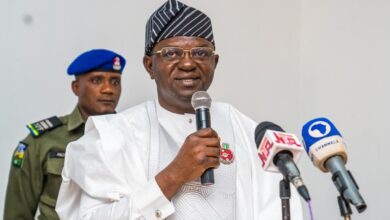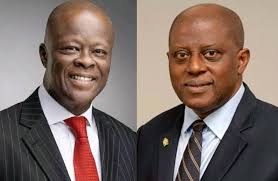The Pains Of Nigerian Telecoms Subscribers Over Undersea Cable Cuts

Telecommunications Subscribers in Nigeria, disgruntled with the persistent poor services, have lamented the impact the menace is having on their businesses and social life.
The current disruptions of data and voice services which was attributed to Undersea Cable Cuts along African West Coast have brought untold hardship to Nigerians, as banking transactions are also impeded by this development.
The Nigerian Communications Commission (NCC), had explained that a combination of cable cuts, resulting in equipment faults on the major undersea cables along the West African Coast have negatively impacted data and fixed telecom services in several countries of West Africa, including Nigeria, Ghana, Ivory Coast, Senegal, Cote D’Ivoire, among others.
The cuts, according to the telecoms regulator, occurred somewhere in Cote de’Ivoire and Senegal, with an attendant disruption in Portugal.
NCC said, cable companies -West African Cable System (WACS) and African Coast to Europe (ACE) in the West Coast route from Europe have experienced faults while SAT3 and MainOne have downtime.
It said, similar undersea cables providing traffic from Europe to the East Coast of Africa, like Seacom, Europe India Gateway (EIG), Asia-Africa-Europe 1 (AAE1), are said to have been cut at some point around the red Sea, resulting in degradation of services across on these routes.
NCC noted that in Nigeria and other West African countries, Internet access and speed have experienced disruptions in the networks of service providers in the affected countries.
The incident, in addition to the poor quality of services from the service providers in Nigeria that have persisted for months now have crippled businesses, especially, banking operations in the country.
Although, the Federal Government of Nigeria quoting the report by net blocks, on Internet infrastructure disruption, said, the disruption to internet services in Nigeria was medium, following the damage to undersea cables.
The Special Adviser on Information and Strategy to President Bola Tinubu, Bayo Onanuga said, “at 67 percent, it is not as terrible compared to the severe outage suffered by Ivory Coast, down to 4 percent or the very high outage 17-23% being experienced by Liberia and Benin Republic, data by Netblocks, the internet watchdog shows”.
Meanwhile, a cooking gas seller told TheFact Daily on Saturday that sale is slow because of the disruptions as customers were finding it difficult to make transactions across banks.
A banker at WEMA Bank told this paper that banking operations have been greatly impacted by the incident, calling for speedy resolution of the problem.
Another Banker, also told the paper that his bank has been struggling since the incident happened. He disclosed that banking operations was disrupted at the weekend because of the bad internet service.
However, NCC said, the Operators of the cables have commenced repairs already, and services are gradually being restored, adding that they promised to work round the clock to ensure that services are restored to the affected countries within the shortest possible time.
Reacting to the development, one of the operators, MainOne, whose facilities provide internet services to many parts of western and southern Africa said, it may take five weeks for the repair work to be completed.
It said, “this process might take 1-2 weeks for repairs while about 2-3 weeks of transit time may be required for the vessel to pick up the spares and travel from Europe to West Africa once the vessel is mobilised”.
The company said, its preliminary analysis suggested that some form of seismic activity on the seabed resulted in a break to the cable, but would obtain more data when the cable is retrieved during the repair exercise.
At the weekend, MainOne declared a force majeure, and explained steps taken to restore internet connection to service providers.
It said that commercial contracts typically included such a force majeure clause which enabled service providers to suspend contractual obligations for the duration of such disruptions.
The company in a statement on Friday said, “we believe it is important to inform our customers of the fault details given the magnitude of the situation to set expectations and make contingency arrangements while the repairs are ongoing.
‘’We experienced a fault on the MainOne network, preliminary findings and further investigations revealed that the fault occurred due to an external incident.
”That external incident resulted in a cut on our submarine cable system in the Atlantic Ocean offshore Cote D’Ivoire, along the coast of West Africa.
“However, we have a maintenance agreement with Atlantic Cable Maintenance and Repair Agreement (ACMA) to provide repair services for the submarine cable,’’ the statement said.
Responding to the issue, the Minister of Communications, Innovation and Digital Economy, Dr. Bosun Tijani said, the issue is a blessing in disguise.
He said, “some crisis help strengthen economies and people when used as impetus for growth. The unfortunate incident of the submarine cable cuts is helping to build anti-fragility into our digital economy”.
“I must commend the selflessness shown by the leadership of GloWorld, WIOCC, MTNNG, Mainone service and the entire sector in coming together to limit the impact of the cuts. Your actions are helping us all to better prepare for the future.
“This is also an opportunity for us to review international laws and collaborations to adequately protect undersea cables and I will be engaging regional and global bodies to accelerate efforts on this crucial agenda.
“To those experiencing disruption, please rest assured that NCC is working with all key stakeholders to resolve the matter in the shortest possible time”, he said.






